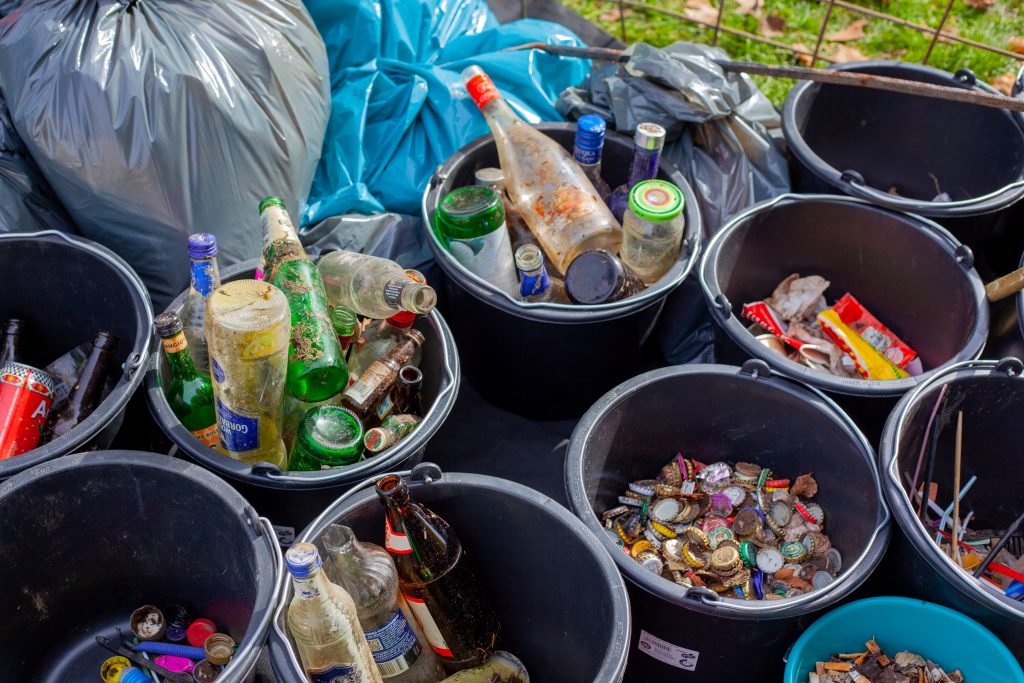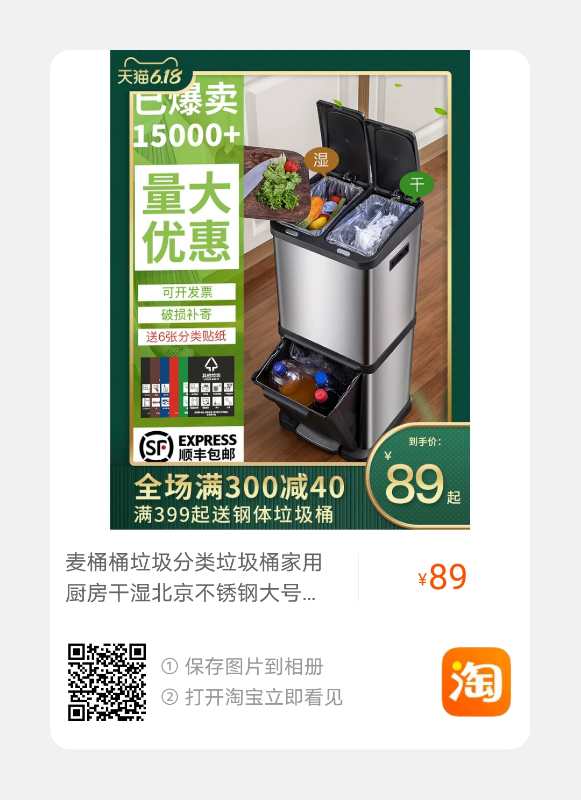Is soft plastic recyclable? Do I throw my kitchen waste out with a bag or loose? Where does toilet paper go? If you’ve puzzled over any of these questions recently, you aren’t alone.
Since May 1, Beijing households have been required to sort their household waste into four different categories: Recyclables, Kitchen waste, Other waste, and Hazardous waste, and many communities have reported shiny new color-coded bins installed in their courtyards. Yet confusion still abounds and many people are unsure about exactly how to dispose of their household waste.

Beijing has a ways to go with sorting trash, but this new law is a step in the right direction
To get some clarity on the new system, and advice for families on how to manage it at home, I talked to Markus Dicke, the founder of German Biowaste, the first company in China to design and build biological mechanical waste treatment plants on a commercial scale. You might describe German Biowaste as an overnight success eleven years in the making. Dicke founded his company in Beijing in 2009, but business has recently taken off with the new government waste treatment policies, as demand for ecological treatment of biowaste has never been higher. Dicke is also an environmentalist and uniquely well-positioned to shed some light on this topic.
Why is China doing this all of a sudden?
Waste management is fundamentally an environmental issue. Better waste management means fewer greenhouse gasses, less reliance on fossil fuels, and less pollution. Furthermore, wet waste like food scraps makes up almost 60% of China’s waste but is ill-suited to either landfill (where the nutrients from the food scraps are totally lost) and incinerators (wet waste doesn’t burn well, and again, all the nutrients are lost). By separating the different kinds of waste at the source, China can create a cleaner, more energy-efficient waste management system, and that benefits everyone.“The purpose is to generate energy from waste, or to treat it so that it’s not harming the environment” as Dicke says. “With this technology, we can generate 2-3 times more energy from every tonne of waste compared to landfill or incineration.”
I’m reading a lot of contradictory information, what are the official regulations?
This infographic– entirely in English – provided by the Beijing Municipal Government details how to sort trash correctly.
How should I organize my bins at home?
Many families have found success with this bin on Taobao, which automatically separates into 3 categories. Of course, you don’t need to buy a special bin, but it is recommended to have clearly designated containers for the different types of trash (kitchen, recyclable, hazardous, and other.)

Scan the QR code to find this bin on Taobao
Should we put everything in garbage bags?
For ‘other’ waste, yes. For kitchen waste and recyclables, Dicke says it’s best to dispose of them loose. Ideally, you would have a reusable container for your waste which you can empty out into the bin and take back to the apartment. If this is not practical for you, he suggests collecting the waste in plastic bags, but instead of throwing them into the bin whole, just empty the items out, then discard the plastic bag into the ‘other’ waste’ bin.
How are other parents managing waste sorting with children?
Dicke describes children as “waste ambassadors” as once they have been educated, they are very effective at pointing out mistakes and educating the adults around them. (Think “Papa, why are you putting batteries in the recycling bin? That’s not right!”).
However, even adults can find it tricky to sort waste correctly, so one good strategy is to designate an ‘I don’t know’ box. Whenever your child is unsure where to put an object, they put it here so you can review them together later.
If they are old enough, kids could also use the Beijing Trash Classification Reference (WeChat ID: 北京市垃圾分类宝典), a fun app that tells you how to dispose of any time you scan. For more info on that, click here.

This cute app is in Chinese only, but very easy to navigate
How can I get our ayi on board with the new system?
Many Western countries have been separating waste for decades now, but the same is not true for China. Therefore, your ayi may not be familiar with the system or the reasons behind doing it. If you sense that your ayi is unsure, explain that recycling an important value for your family and not just a weirdly elaborate game designed to make her life difficult! Keep the conversation open, and encourage her to use the ‘I don’t know’ box along with other family members.
I’m a bit confused about how my building management is sorting trash, what should I do?
If in doubt, go directly to your building management and ask for clarification. Even now, a full month since the new regulation passed, there are still many communities that have not implemented the new system, or are continuing to dump all the different bins into one big truck all the same. This can be frustrating but Dicke reminds us that a new system like this in a country as big as China “cannot be switched on from one day to another”. Rome wasn’t built in a day, but doing the right thing and forming good habits now will pay dividends in the future for both us and our children.
KEEP READING: How to Use the Bulk House ‘Zero Waste’ Online Stores
Images: rmzxb.com.cn, Beijing Trash Classification Reference




